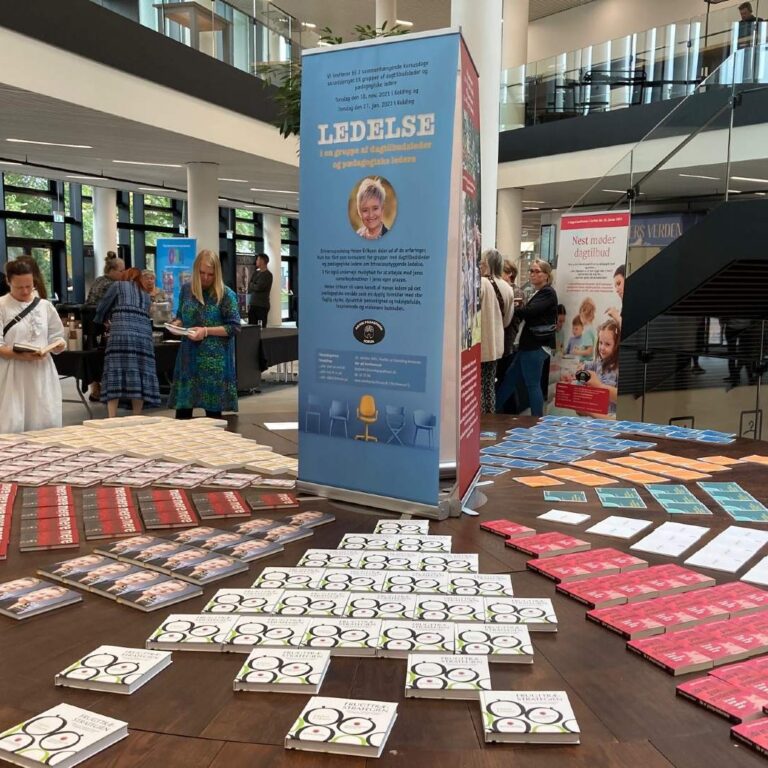There has been an election in Denmark, and regardless of the government's color and composition, action needs to be taken. My greatest hope and heartfelt urging for the new government is that, through action, reforms, and human responsibility, it confronts the "sick" structures and endless exercises in cost-cutting and efficiency that, for far too many years, have contributed to the decline of meaning, values, and purpose — and to employees, leaders, professionals, and citizens who have simply had enough!
In recent months, the debate about 'quiet quitting' has gained momentum here, along with an increased focus on employees, leaders, and professionals who mentally resign – in other words, 'quiet quitters' – by only doing what is absolutely necessary, nothing more. At the same time, there is discussion about what quiet quitting even signifies and what we can use the debate for. It has been pointed out how quiet quitting can be seen as an individual's defense against burnout and as a sign of a population group increasingly desiring a life where work and career are not the primary identity-forming factors.
These explanatory frameworks, I think, are very accurate. However, I also believe that the debate about quiet quitting provides an opportunity to focus on the demotivating structures, conditions, and frameworks that we, as a society, impose on our talented employees, leaders, and professionals.
We quiet quit when we experience a decline in meaning, values, and purpose
Primarily, I see quiet quitting as an alarming symptom of the decline in meaning, values, and purpose, which, from a political level, has been allowed to persist for far too long, especially in the public sector. A decline that has only grown larger as the requirements for goal-setting, efficiency, documentation, and registration have increased, leading to a situation where more "cold" hands than "warm" hands are hired in municipalities.
The result of many years of continued New Public Management tyranny is employees and leaders who are fighting an unfair but heroic battle, as adaptable beings that we humans are. Employees and leaders who constantly have to run faster and faster while receiving fewer resources and less time for what matters most to their job satisfaction, well-being, and motivation – the opportunity to focus on the citizen, whether it is about students in the public school, the sick in hospitals, children in daycare, the elderly in nursing homes, and the list goes on. For us humans to thrive and be motivated, we need to experience meaning, coherence, feel that we have a purpose, a voice, and an opportunity to make a difference. All of this has limited opportunities within the current framework.
According to a a recent survey among municipal leaders just over 40 percent of public leaders across sectors see it as a significant challenge for their unit to put the citizen first in task execution. This aligns well with the experiences I hear from the public leaders I have taught at CBS in the leadership module "How do we motivate the demotivated."
Time for political rethinking!
There is an urgent need for political responsibility because it is simply ethically indefensible that we, as a society, continue to squeeze the lemon with structures and conditions that deprive job satisfaction, motivation and lead to quiet quitting among our talented employees and leaders – resulting in poorer service to our citizens. We have thoroughly tested the current New Public Management model and approach. It didn't work, and we need to do something else, as philosopher Jiddu Krishnamurti aptly puts it:
”It is no measure of health to be well-adjusted to a profoundly sick society.”
It is time for politicians to prioritize purpose, meaning, and coherence in how we organize society and the public sector, exactly as research in motivation, well-being, and sustainable growth tells us we should.
It might be obvious to start by inviting the warm hands much more into the decision-making processes on a political level so that their experiences become the foundation for policy formulation. So that systems are designed around people – and never the other way around. Why not ask doctors and nurses how to create the best hospitals? Why not ask school leaders and teachers how to create the world's best public school? Healthcare and social workers, how we should organize our nursing homes?
A awakened population demanding more meaning now
It takes political courage to shake things up and do something different than usual. With great power comes great responsibility. At the same time, I fundamentally believe that politicians more than ever should start listening to a population that increasingly focuses on what gives them purpose and meaning and has had enough of what does not – especially after several years of the coronavirus.
The coronavirus period threw us out of the everyday life as it once was, and for many, it shed light on more and different aspects of what makes us happy and meaningful. New realizations, experiences, priorities, and dreams emerged, and certainly also a greater awareness of what we no longer want. The echo from the many leaders and employees I meet daily speaks volumes. The challenges and changes during the coronavirus period revealed new opportunities and created an interesting structural centrifugal force that sent many long-standing and useless methods and ways of working to the corner and made it existentially clear that goal-setting, constant efficiency, endless documentation requirements, less time for the core task, and widespread bureaucratization are not the way forward for the working life we widely dream about and are nourished by.
Listening to the professionally experienced and talented should be fundamental in any democracy. And since the echo from skilled and experienced leaders and employees seems to grow larger every day, I would encourage us, in a united voice, to try to wake up politicians and clarify the seriousness of the matter. To insist that our experience and expertise be heard. The opposite is simply politically unprofessional and disrespectful. Unfortunately, we have obediently tolerated it for far too long.
And while we do this, it is crucial that we continue to fight wisely in the immediate vicinity. Remember that regardless of political decisions, it is us, in the immediate vicinity, who are the culture, creating and recreating it. By recognizing ourselves and each other for the enormously important difference we each make in this society. By focusing on coherence and prioritizing dialogues about how we organize everyday life in individual organizations, departments, and teams, so that we maintain our good humor, humor, and create as much coherence, meaning, and well-being as possible, to be able to focus on the citizen in task execution.
#Moremeaning #Moremeaning.now #Wellbeing #JobSatisfaction #Coherence #Cohesion #It's us who are the culture











